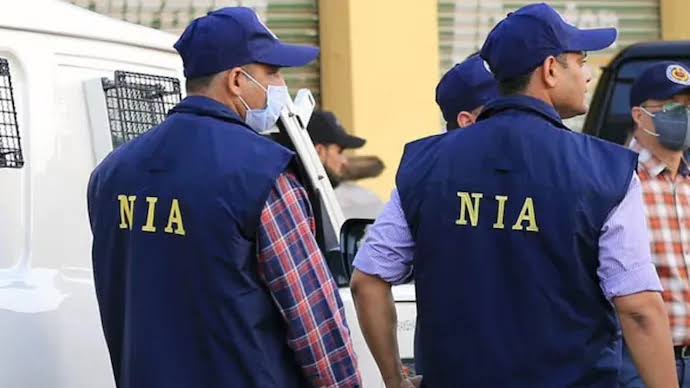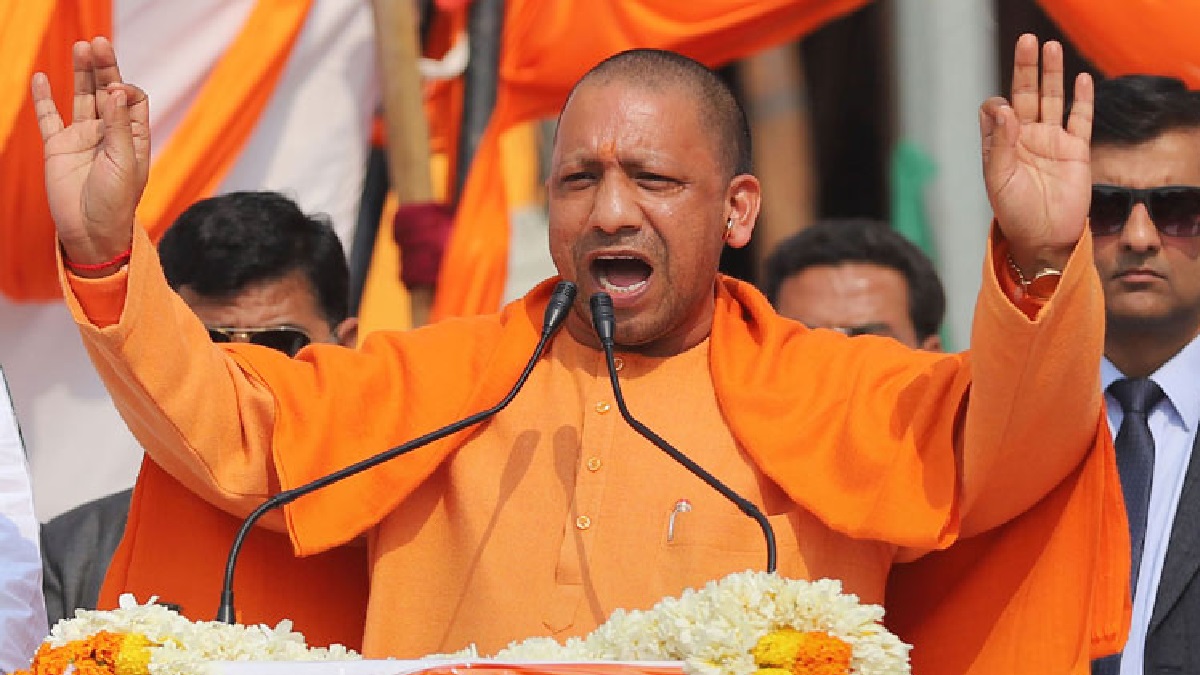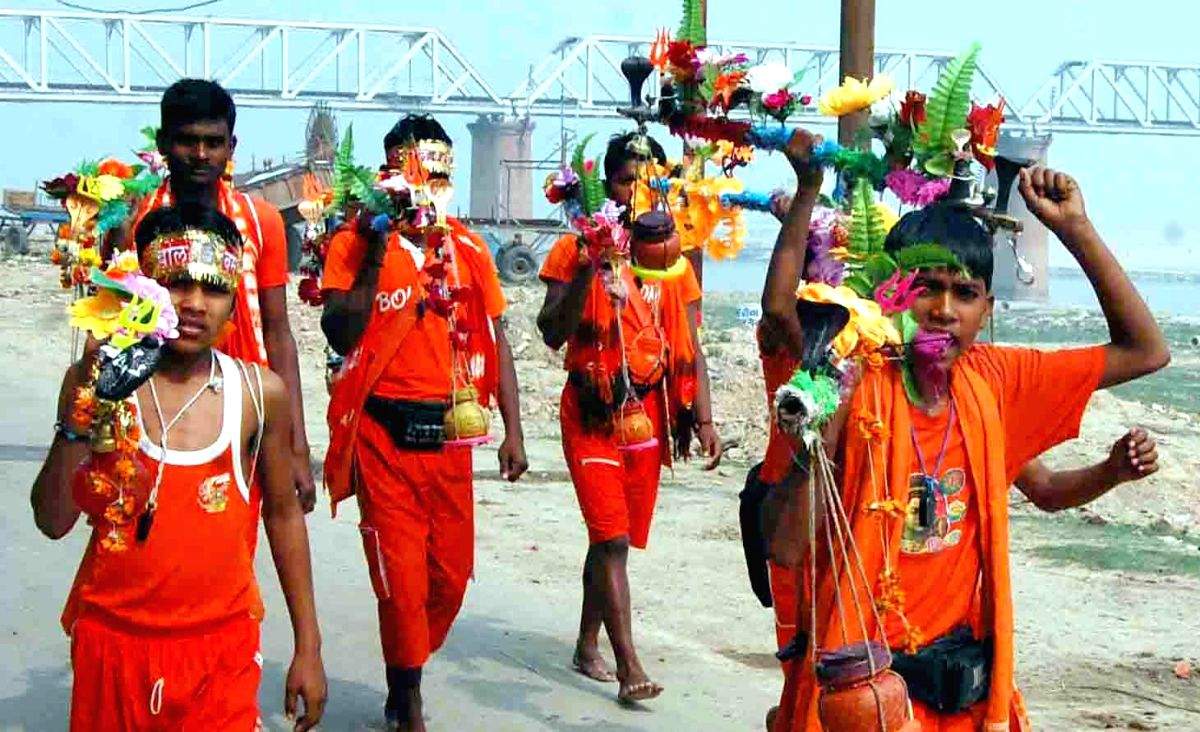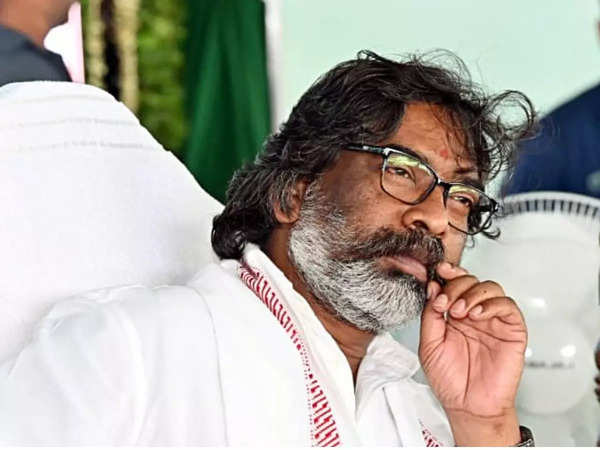Home / jharkhand / Religious Conversion Sparks Controversial Burial Dispute in Jharkhand Village
Religious Conversion Sparks Controversial Burial Dispute in Jharkhand Village
By: My India Times
5 minutes read 66Updated At: 2025-01-15

A tragic incident has emerged in Mahuwari village, located in the Lohardaga district of Jharkhand, where a deeply divided community grappled with a burial dispute stemming from religious conversion. The deceased, 55-year-old Dukha Uraw, not only faced the sorrow of death but also an unfortunate posthumous struggle with his family and community, which were divided over his conversion to Christianity.
Dukha Uraw converted to Christianity approximately ten years ago, departing from the Sarna religious traditions that many tribal families adhere to in the region. His decision to join the Pentecostal church created a rift within his community that would persist and affect his family even after his passing. Although Dukha had resided in Ranchi for many years, he returned to Mahuwari, his ancestral village, for burial following his demise on Sunday after a prolonged illness. However, what should have been a period of mourning quickly escalated into a 36-hour standoff due to deeply entrenched tensions surrounding his religious conversion.
A Conflict Over Faith and Ancestral Land
Central to the dispute was the refusal of the local Christian community in Mahuwari to permit Dukha's body to be interred in the village cemetery. The villagers, aligned with the NWGEL Church, voiced their objections, citing his conversion to Pentecostalism as the basis for their stance. They contended that the village cemetery was designated exclusively for members of their denomination, thereby rendering Dukha ineligible for burial there.
The conflict intensified when Dukha's relatives, who remained committed to the Sarna tradition, also raised objections. They declined to allow Dukha’s body to be interred on the family’s ancestral land, arguing that he had renounced their indigenous faith and was no longer considered part of their family in the traditional sense. The Sarna community, which maintains strong ties to their land and religious practices, perceived Dukha’s conversion as a rejection of their beliefs. They asserted that an individual who had embraced a different religion could not find repose on the family’s land, which they regard as sacred and reserved for adherents of their ancestral faith.
As tensions escalated, the family, seeking a resolution, attempted to bury Dukha’s body on their private property, yet they again met with resistance. Close relatives and villagers opposed the burial, asserting that interring a Christian on the family land would contravene tradition.The community became sharply divided, with emotions running high.
Local Authorities Step In
As the situation grew increasingly tense, the local administration was alerted. A team of officials, led by Lohardaga’s Superintendent of Police Harris Bin Jama, Sub-Divisional Officer Amit Kumar, and other key figures, arrived at Mahuwari village in an attempt to mediate the crisis. The local authorities, recognizing the volatile nature of the dispute, made repeated efforts to convince both the Sarna and Christian factions to come to an agreement.
Despite these efforts, including consultations with local elders and religious leaders, both sides refused to compromise. Dukha’s family, led by his relative Badhna Uraw, remained adamant that their deceased kin should be buried on their family land. However, the villagers and the Sarna community upheld their stance, unwilling to allow the burial of someone who had converted to Christianity.
The standoff persisted for over 36 hours, with the local administration under pressure to find a solution that would prevent further conflict. The situation had become increasingly tense, and authorities feared that any attempt to force a resolution could lead to violent confrontations.
The Decision to Relocate the Burial
In the face of escalating tensions and a lack of resolution, local officials, following the instructions of SDO Amit Kumar, decided to relocate the burial to a different village. On the second day of the standoff, Dukha’s body was moved to Serenghatu village, which falls under the jurisdiction of the Senha police station. There, outside the confines of the village cemetery, Dukha was finally laid to rest.
Though this relocation helped to defuse tensions, it was not an ideal solution for the grieving family. Dukha’s relatives were forced to bury him far from their ancestral land, a place that held deep sentimental and spiritual significance. The decision, while necessary to prevent violence, underscored the complex and painful consequences of religious divisions within rural communities.
Religious Tensions and Community Divisions
This incident is not an isolated one. It highlights the growing tensions between traditional tribal faiths, like the Sarna religion, and Christianity, which has been making significant inroads in many tribal areas of Jharkhand. The conflict illustrates how religious conversions can exacerbate existing fractures within communities, particularly when they involve deeply ingrained cultural practices and beliefs tied to land and identity.
The Mahuwari case also raises important questions about religious tolerance and the rights of individuals to practice their faith without fear of retribution. In a country like India, where religious diversity is celebrated, such incidents highlight the persistent challenges of achieving true religious harmony, especially in areas where traditional beliefs and modern religions often come into conflict.
A Broader Reflection on Religious Freedom
Religious conversion and its impact on community life are complex issues that require sensitive handling. This case serves as a reminder of the deep emotional and cultural ties that people have to their faith and traditions. For Dukha’s family, his decision to embrace Christianity was not just a spiritual choice but a personal one that set him apart from his family and community. And yet, his family’s sorrow was compounded by the division that arose after his death.
The role of the local authorities in resolving this dispute was crucial. While they were able to avoid a violent confrontation, the ultimate solution—burying Dukha in a distant village—highlighted the limitations of administrative intervention when dealing with long-standing community divisions. It is clear that such issues cannot be resolved solely through law enforcement or political pressure. They require dialogue, understanding, and a commitment to upholding the principles of religious freedom and tolerance.
As Jharkhand continues to navigate the complexities of religious conversion, the Mahuwari incident serves as a stark reminder that deeper cultural and religious divides must be bridged to create a more harmonious society. Only through mutual respect and understanding can such painful disputes be avoided in the future.
....A tragic incident has emerged in Mahuwari village, located in the Lohardaga district of Jharkhand, where a deeply divided community grappled with a burial dispute stemming from religious conversion. The deceased, 55-year-old Dukha Uraw, not only faced the sorrow of death but also an unfortunate posthumous struggle with his family and community, which were divided over his conversion to Christianity.
Dukha Uraw converted to Christianity approximately ten years ago, departing from the Sarna religious traditions that many tribal families adhere to in the region. His decision to join the Pentecostal church created a rift within his community that would persist and affect his family even after his passing. Although Dukha had resided in Ranchi for many years, he returned to Mahuwari, his ancestral village, for burial following his demise on Sunday after a prolonged illness. However, what should have been a period of mourning quickly escalated into a 36-hour standoff due to deeply entrenched tensions surrounding his religious conversion.
A Conflict Over Faith and Ancestral Land
Central to the dispute was the refusal of the local Christian community in Mahuwari to permit Dukha's body to be interred in the village cemetery. The villagers, aligned with the NWGEL Church, voiced their objections, citing his conversion to Pentecostalism as the basis for their stance. They contended that the village cemetery was designated exclusively for members of their denomination, thereby rendering Dukha ineligible for burial there.
The conflict intensified when Dukha's relatives, who remained committed to the Sarna tradition, also raised objections. They declined to allow Dukha’s body to be interred on the family’s ancestral land, arguing that he had renounced their indigenous faith and was no longer considered part of their family in the traditional sense. The Sarna community, which maintains strong ties to their land and religious practices, perceived Dukha’s conversion as a rejection of their beliefs. They asserted that an individual who had embraced a different religion could not find repose on the family’s land, which they regard as sacred and reserved for adherents of their ancestral faith.
As tensions escalated, the family, seeking a resolution, attempted to bury Dukha’s body on their private property, yet they again met with resistance. Close relatives and villagers opposed the burial, asserting that interring a Christian on the family land would contravene tradition.The community became sharply divided, with emotions running high.
Local Authorities Step In
As the situation grew increasingly tense, the local administration was alerted. A team of officials, led by Lohardaga’s Superintendent of Police Harris Bin Jama, Sub-Divisional Officer Amit Kumar, and other key figures, arrived at Mahuwari village in an attempt to mediate the crisis. The local authorities, recognizing the volatile nature of the dispute, made repeated efforts to convince both the Sarna and Christian factions to come to an agreement.
Despite these efforts, including consultations with local elders and religious leaders, both sides refused to compromise. Dukha’s family, led by his relative Badhna Uraw, remained adamant that their deceased kin should be buried on their family land. However, the villagers and the Sarna community upheld their stance, unwilling to allow the burial of someone who had converted to Christianity.
The standoff persisted for over 36 hours, with the local administration under pressure to find a solution that would prevent further conflict. The situation had become increasingly tense, and authorities feared that any attempt to force a resolution could lead to violent confrontations.
The Decision to Relocate the Burial
In the face of escalating tensions and a lack of resolution, local officials, following the instructions of SDO Amit Kumar, decided to relocate the burial to a different village. On the second day of the standoff, Dukha’s body was moved to Serenghatu village, which falls under the jurisdiction of the Senha police station. There, outside the confines of the village cemetery, Dukha was finally laid to rest.
Though this relocation helped to defuse tensions, it was not an ideal solution for the grieving family. Dukha’s relatives were forced to bury him far from their ancestral land, a place that held deep sentimental and spiritual significance. The decision, while necessary to prevent violence, underscored the complex and painful consequences of religious divisions within rural communities.
Religious Tensions and Community Divisions
This incident is not an isolated one. It highlights the growing tensions between traditional tribal faiths, like the Sarna religion, and Christianity, which has been making significant inroads in many tribal areas of Jharkhand. The conflict illustrates how religious conversions can exacerbate existing fractures within communities, particularly when they involve deeply ingrained cultural practices and beliefs tied to land and identity.
The Mahuwari case also raises important questions about religious tolerance and the rights of individuals to practice their faith without fear of retribution. In a country like India, where religious diversity is celebrated, such incidents highlight the persistent challenges of achieving true religious harmony, especially in areas where traditional beliefs and modern religions often come into conflict.
A Broader Reflection on Religious Freedom
Religious conversion and its impact on community life are complex issues that require sensitive handling. This case serves as a reminder of the deep emotional and cultural ties that people have to their faith and traditions. For Dukha’s family, his decision to embrace Christianity was not just a spiritual choice but a personal one that set him apart from his family and community. And yet, his family’s sorrow was compounded by the division that arose after his death.
The role of the local authorities in resolving this dispute was crucial. While they were able to avoid a violent confrontation, the ultimate solution—burying Dukha in a distant village—highlighted the limitations of administrative intervention when dealing with long-standing community divisions. It is clear that such issues cannot be resolved solely through law enforcement or political pressure. They require dialogue, understanding, and a commitment to upholding the principles of religious freedom and tolerance.
As Jharkhand continues to navigate the complexities of religious conversion, the Mahuwari incident serves as a stark reminder that deeper cultural and religious divides must be bridged to create a more harmonious society. Only through mutual respect and understanding can such painful disputes be avoided in the future.
By: My India Times
Updated At: 2025-01-15
Tags: jharkhand News | My India Times News | Trending News | Travel News
Join our WhatsApp Channel















.jfif)































































































.png)
 (1).png)























